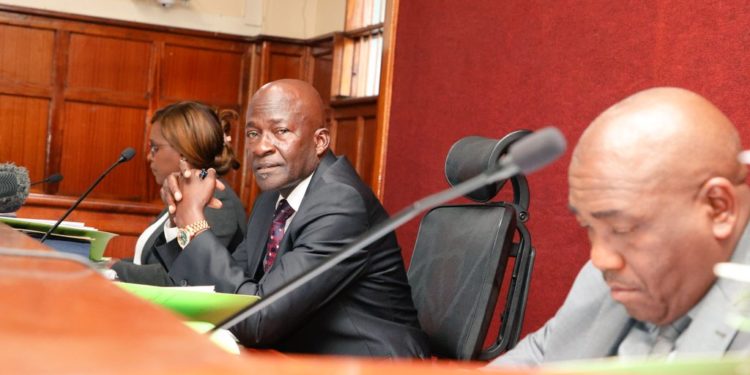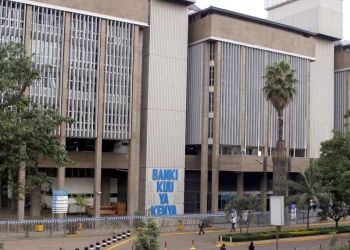The High Court has ruled in favor of the Deputy Chief Justice (DCJ) Philomena Mwilu, dismissing claims that she overstepped her mandate in assigning judges to preside over the impeachment case of Deputy President Rigathi Gachagua. The court found that the DCJ acted within her constitutional powers, setting an important precedent on judicial bench assignments in the country.
In their ruling, the judges confirmed that the DCJ could constitutionally deputize the Chief Justice in cases where the latter was unavailable. Petitioners had argued that under Article 165(4) of the Constitution, only the Chief Justice had the authority to empanel judges for constitutional matters. However, the court emphasized that the Constitution allows the DCJ to perform such administrative functions when necessary.
“We find no fault in the Deputy Chief Justice exercising the function of assigning benches under Article 165(4) when the Chief Justice is for good reason unable to perform this duty,” the court stated.
The case, which has attracted widespread attention due to the involvement of the Deputy President, saw the petitioners challenge the legality of the bench hearing their case. They argued that the DCJ’s involvement in assigning judges compromised the legitimacy of the proceedings. However, the court dismissed this argument, reaffirming the DCJ’s capacity to act in the Chief Justice’s stead in specific situations.
Living Constitutionalism Doctrine
At the heart of the court’s ruling was the doctrine of living constitutionalism, which posits that the Constitution is a dynamic document that evolves over time to reflect societal changes. This principle was applied to interpret the Constitution in a manner that would ensure the continued functionality of the judiciary, even in instances where the Chief Justice might be unavailable.
The court cited previous rulings, including Kenya Medical Research Institute vs. Attorney General, which established that the role of the Chief Justice in assigning benches is both administrative and judicial. The court stated that this flexibility allows for the uninterrupted operation of the judiciary.
“The Constitution does not freeze roles in time but allows for adaptability. The Deputy Chief Justice, acting in her capacity as the deputy head of the Judiciary, can assign judges under administrative functions when the need arises,” the court ruled.
This interpretation, the judges argued, ensures that judicial processes are not delayed by the absence of the Chief Justice. The ruling set an important legal precedent, providing clarity on the roles of senior judiciary members and ensuring that constitutional functions are carried out without disruption.
Claims of Procedural Impropriety Rejected
Aside from the constitutional argument, the petitioners also raised procedural complaints, asserting that the case files were transmitted outside regular court hours and that the bench improperly prioritized the matter. The court, however, dismissed these claims, noting that the modern case-tracking system (CTS) allows for real-time processing of documents, which enables the judiciary to operate efficiently even beyond traditional working hours.
“We have carefully considered the petitioners’ claims and find that they hold no merit. The case-tracking system has revolutionized judicial practice, and the court acted within its powers to handle the matter expeditiously,” the bench stated.
The petitioners had also suggested that the court was unduly prioritizing this case over others, implying bias in the handling of the proceedings. However, the court emphasized that the urgency of the matter, given its implications for the country’s political leadership, justified the expedited process. The bench pointed out that the impeachment of the Deputy President marked a historic first for Kenya, warranting swift legal proceedings.
“The impeachment of the first petitioner has garnered significant public interest. These legal proceedings are of paramount concern to the citizens of this country, and as such, it is only right that the court addresses them promptly,” the court said.
Public Interest and Judicial Integrity
In their ruling, the judges reaffirmed that the case involves matters of significant public interest. The bench highlighted the broader implications of the case, noting that it directly affects the nation’s governance and the functions of its highest office holders.
“The issues raised in this case have far-reaching implications for the country’s governance. The role of the Deputy President and the manner in which this court proceeds with the case will undoubtedly have a profound impact on the political and constitutional landscape of Kenya,” the ruling noted.
The court’s decision to expedite the case was driven by the need to ensure legal clarity on the impeachment process of the Deputy President, the first such instance in Kenya’s history. The judges emphasized that any delays in addressing the constitutional issues at hand would be detrimental to the country’s governance, especially given the heightened public scrutiny surrounding the case.
“We hold that public interest demands the expeditious resolution of this case, and it is incumbent upon this court to ensure that justice is served swiftly and fairly,” the bench said.
In addition to dismissing claims of procedural impropriety, the court addressed accusations of bias, rejecting them outright. The bench reiterated its commitment to impartiality and judicial independence, noting that the petitioners had failed to present any credible evidence to support their allegations.
“The bench remains steadfast in its duty to uphold the Constitution and the rule of law. We will not be swayed by any attempts to cast aspersions on our impartiality,” the court declared.


















